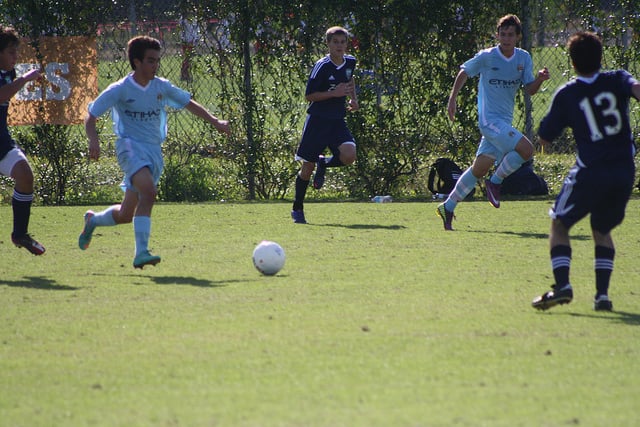Many parents send their children to camps during the summer to keep them entertained and to help develop their maturity and teach them life lessons. Sports camps, in particular, benefit children in many ways that other less active camps simply can’t. Benefits of sports camps include valuable life lessons about responsibility, hard work, and even health and fitness. And, of course, children get to improve their skills on the field or court. Most importantly, children have a great time at sports camps and make memories that last a lifetime.
Whether you’re thinking about sending your child to a summer sports camp, or you’re thinking about starting a summer camp yourself, it’s helpful to know what summer camps teach children and why these lessons are important.
Sports camps teach children about health and fitness
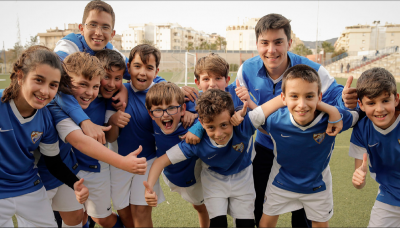
According to the World Health Organization, children ages 5 to 17 should participate in at least 60 minutes of moderate-vigorous physical activity daily.
Children who participate in sports camps are guaranteed to meet this requirement during their time at camp, and many sports camps even make it a point to teach children the importance of physical activity and living a healthy lifestyle.
Children who attend sleep away sports camps are also usually fed nutritious meals and are taught the importance of eating healthy.
Sports camps inspire children to enjoy physical activity and to adapt healthy lifestyle habits that will last them a lifetime. Click here to explore some great options for sleep away sports camps all over the world.
Why is health and fitness so important for children?
Physical activity during childhood is extremely important to the health, growth, and development of young children.
Children benefit from at least 1 hour of moderate to vigorous physical activity per day both physically, psychologically, and otherwise.
Some physical benefits of sports camps include:
- A reduced risk of becoming overweight or obese
- A reduced risk of heart disease, cancer, and type 2 diabetes later in life
- Strong bones and muscles
- A healthy heart, lungs, and arteries
- Improved coordination, balance, posture, and flexibility
Other benefits of sports camps include:
- Reduced risk of anxiety or depression
- Improved academic performance
- Increased self-confidence and social skills
Sports camps teach techniques and skills
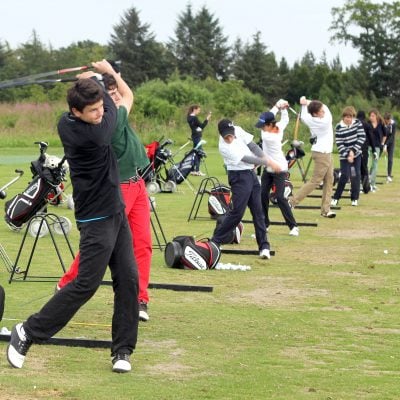
Of course, one of the most important benefits of sports camps is that they greatly improve athletes’ skills.
At these sports camps athletes train with experienced coaches affiliated with world-famous football teams like Real Madrid, FC Barcelona, PSG, AC Milan, Manchester City, Liverpool, Chelsea FC, and many more. They learn the philosophies and methodologies of these incredible teams in state of the art facilities.
Tennis players can train at the famous Juan Carlos Ferrero tennis academyin Spain or one of these other prestigious options. Golfers can attend the golf program in St. Andrews in the United Kingdom and train with official PGA coaches.
Players can also train at high performance football academies. Participants at these camps train at a very high level. The most talented young athletes in the world get to compete against each other and push each other to be the best they can be.
“Overall, my son loved the atmosphere of the camp. He was impressed that it was a truly international environment, with excellent players from many countries. The level of training is quite high.” Alan McGuire – USA.
Why is it important for young athletes to improve their skills?
The best young athletes enjoy many more benefits than mediocre athletes. They have higher self-esteem and confidence and are more likely to be leaders and captains. They could also receive funding to compete in a university or even pursue a professional career in their sport.
The most skilled athletes are more likely to be captains of their teams. Team captains gain experience that’ll serve them for the rest of their lives. They learn to communicate with assertion and respect, to resolve conflict, to motivate, and to lead by example among many other important skills.
The most highly skilled athletes at many sports camps like these high performance football camps are scouted by professional teams and sign contracts to compete professionally or win scholarships to compete at universities in the USA. Check out this high performance soccer camp in the USA which offers many scholarship opportunities to play football in the USA.
Sports camps teach responsibility and work ethic
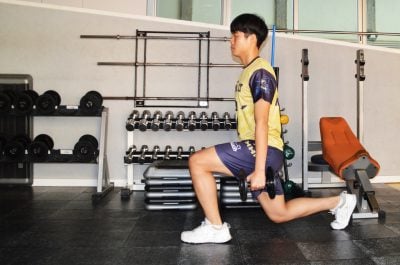
Increased sense of responsibility and work ethic are two more benefits of sports camps in children.
At these sleep away sports camps, more than likely, the children have to follow a time-table to attend training sessions, to eat lunch, to attend workshops, etc. Simply waking up on time and making it to the training sessions teaches children responsibility and self-discipline and helps them to develop responsible habits at a young age.
Furthermore, sports teach children the importance of work ethic. Not only do most coaches reward hard work ethic, but also, children see their hard work pay off in their performance. The harder they work, the faster they improve.
“Alek has acquired a better technique in football, has been living together with children from all over the world, learned to be tidy, to get up early, have breakfast, play sports and meet certain rules.”
Why are responsibility and work ethic important?
Responsibility and work ethic are important because both qualities are necessary for success in all aspects of life whether it be career, academics, relationships, or otherwise.
Children who develop a sense of responsibility at sports camps by following the instruction of the coaches and arriving to the training sessions on time demonstrate this same sense of responsibility later on in life in the workplace. They follow the instructions of their bosses and show up to their shifts on time and ready.
Furthermore, the same responsible habits benefit children in the classroom. Sports camps teach children to show up to their classes on time and follow directions in the classroom. Such habits ultimately lead to their academic success.
Sports camps teach tolerance and cultural awareness

More benefits of sports camps include increased cultural awareness and a greater sense of tolerance for cultural differences.
Many sports camps receive participants from all over the world who are passionate about their sport and excited to practice it in a new environment.
Participants in sports camps not only get to know other children from all over the world, but they also share a common passion with children from other cultures.
Through this common bond, they make international friendships and share their cultural differences with an open mind.
“He became more responsible and improved his language. He enjoyed being with people of different nationalities and learnt to be tolerant. It is a very good experience for parents and children."
Why are tolerance and cultural awareness important for children?
Responsibility and work ethic are important because both qualities are necessary for success in all aspects of life whether it be career, academics, relationships, or otherwise.
Children who develop a sense of responsibility at sports camps by following the instruction of the coaches and arriving to the training sessions on time demonstrate this same sense of responsibility later on in life in the workplace. They follow the instructions of their bosses and show up to their shifts on time and ready.
Furthermore, the same responsible habits benefit children in the classroom. Sports camps teach children to show up to their classes on time and follow directions in the classroom. Such habits ultimately lead to their academic success.
Sports camps teach social skills and intercultural communication

Children who participate in sports camps learn important social skills such as leadership skills or the ability to connect to others and make friendships.
Most participants arrive at sports camps without knowing anyone and are forced to interact with new people and make new friends. Many sports camps even require camaraderie and communication to achieve the maximum benefits of the camp and therefore organize activities and excursions to help campers bond.
Furthermore, many participants at these sports camps are international students who must communicate in their second language. Camp participants learn that communication is always a two-way street which requires just as much effort from the listener as from the speaker. One of the most important benefits of sports camps is that children learn patience and tolerance.
Why are social skills and intercultural communication important for children?
The development of social skills is one more of the many benefits of sports camps for children. The development of social skills prepares children for a lifetime of effective communication and healthy social interactions.
Listening skills, consideration of the feelings of others, and the ability to express personal needs are all part of social skills which help children to communicate with both peers and adults or superiors.
Such skills contribute to children’s development as effective, caring, and compassionate members of society.
Moreover, intercultural communication skills contribute to the general virtues of tolerance and acceptance that are so important in today’s global economy.
Sports camps teach self-esteem and confidence

According to Psychology Today, one of the best ways to improve self-esteem and confidence is to set goals and accomplish them. Leaving home to attend a sports camp for a week or more can be quite a challenge for young children, but children who attend these camps come home with an incomparable sense of pride, accomplishment, and confidence.
Camp monitors and coaches make sure that children feel welcome and comfortable during their stay. They even assist the children in making friends by preparing activities and organizing excursions.
Furthermore, coaches praise the effort and abilities of players as well as critique areas in which the young athletes need improvement. In this way, children feel important and also learn to accept criticism – an essential skill for facing challenges later in life.
Moreover, the simple accomplishment of being away from home for a week or more gives these children an exceptional sense of pride and confidence. Increased self-esteem is one of the many benefits of sports camps.
“The truth is he was very satisfied. It pleased him that they thoroughly discussed what is good and obviously what is bad, because that is important. They recognized his skills but always created an attitude to improve, staying honest."
Why are self-esteem and confidence so important for children?
Most psychologists agree that high self-esteem and confidence are directly related to higher performance and better behavior. Children with higher self-esteem are more likely to be successful later in life in their careers, relationships, and otherwise.
According to Brian Tracy, world-famous self-development author and motivational speaker, “Self-esteem, the feeling of liking and respecting yourself, is the foundation principle of success and happiness. It is vital for you to feel fully alive.”
Sports camps provide enjoyment and a renewed love of sport
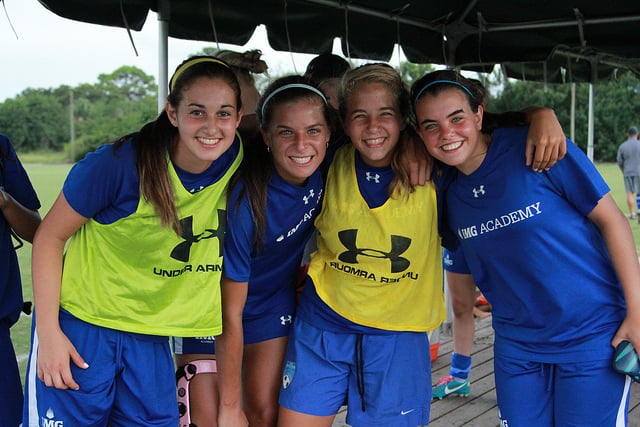
Sports camps are exciting! Athletes get to practice on new fields, or courts, or courses, in new cities, with new friends and new coaches. Many sports camps like the ones here even offer activities and excursions as part of their time-tables. Such newness can provide hard-working young athletes with a renewed love for their sport.
Most young athletes begin training for pure enjoyment. However, as they start training at a more advanced level, it’s common for athletes to experience burnout – commonly defined by sports psychologists as physical or emotional exhaustion, sport devaluation, and reduced athletic accomplishment. Many athletes who experience burnout give up their sport and therefore miss out on all the benefits mentioned above.
One of the many benefits of sports camps is that they can reduce or prevent athlete burnout and renew athletes’ love for their sport.
Why is it important that children enjoy their sport?
One of the many benefits of sports camps is that they have the capacity to reduce athlete burnout and ensure that children to continue to practice their sport and live happier and healthier lives.
Athletes who experience burnout often quit their sport. Quitting is closely linked to failure, and quitting can greatly hurt a child’s self-esteem.
Additionally, athletes who love their sport are more inclined to work hard at practice, demonstrate discipline and leadership skills, and excel as athletes.
Even more importantly, children who have more fun actually live healthier lives. Children who live in areas with more parks and recreational activities are both healthier and happier than children who don’t.
How to sign your child up for a sports camp
Signing your child up for a sports camp, especially one in which your child spends various weeks away from home, can be a stressful process.
There’s a lot to consider:
- What sport would they like to practice?
- Are they already an experienced athlete? Or are they trying out a sport for the first time?
- What are their goals? Do they have the potential to become a professional athlete? Or are they looking for a more relaxing summer vacation?
- In what country and in what language would they like to train?
To help make the decision process either, we’ve created a YouTube channel where we discuss important matters to take into account when choosing a summer camp for your child.
Below, you can watch a video describing the very first step to choosing a summer camp.
Ertheo is a sports and education agency that not only offers various different camps and programs of different kinds, but also offers expert advice to help you choose the right camp for your child according to their specific needs.
Our team is available to answer all of your questions and offer expert advice.
Call us at (+44) 203 769 94 43 or (+34) 902 750 359.

